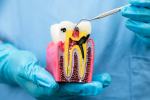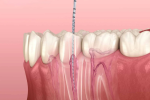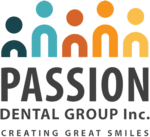
Taking care of your teeth and gums is one of the most important things you can do for your health. Many people ask their dentist how often they should brush and floss their teeth. The answer is simple but very important for keeping your mouth healthy. Following proper oral hygiene in Grande Prairie helps prevent cavities, gum disease, and other dental problems that may affect your overall health.
The Basic Rules for Brushing Your Teeth
You should clean your teeth at least twice every day. Therefore, you should do it twice a day: once in the morning and again before bedtime. Brushing helps to remove plaque, a sticky film of germs that accumulates on your teeth. If you don’t remove plaque, you risk developing cavities and gum disease.
Brush your teeth with a soft toothbrush and fluoride-containing toothpaste. Brush for a minimum of two minutes each time. Many people think they brush for two minutes, but they actually brush for less than one minute. To ensure that you brush for an appropriate amount of time, set a timer or count.
Why Flossing Is Just as Important
Flossing should be done once a day. Your toothbrush cannot reach between your teeth, where food gets stuck. Floss can clean these tight spaces and remove plaque that your toothbrush misses.
Flossing before bed is the best time to do it. This helps loosen the plaque and food pieces so your toothbrush and toothpaste can work better. Your dentist in Grande Prairie may also suggest a routine that fits your needs. Some people find it easier to floss in the morning, and that’s okay, too. The most important thing is to do it every day.
Daily Oral Hygiene Routine Schedule
Time of Day | Activity | Duration | Notes |
Morning | Brush teeth | 2 minutes | Use fluoride toothpaste |
Evening | Floss first | 1-2 minutes | Clean between all teeth |
Evening | Brush teeth | 2 minutes | After flossing for best results |
What Happens When You Skip Brushing or Flossing
When you don’t practice good oral hygiene, bad things can happen to your mouth. Plaque accumulates and becomes tartar, which is hard and yellow. Only a dentist can take tartar out with a cleaning.
If you don’t take care of your teeth, you can have gingivitis. This occurs when your gums are red, swollen, and bleeding. If gingivitis progresses, it becomes periodontal disease, which damages the tissues that support your teeth.
The Periodontal Treatment Process
If you get gum issues, your dentist may prescribe periodontal care. The treatment is a deep cleaning below the gum line to eliminate bacteria and tartar. The treatment inhibits the infection and lets your gums heal.
During gum treatment, the dentist applies special instruments to the roots of your teeth. This is known as scaling and root planing. It may take several visits to accomplish.
Healing After Gum Treatment
Healing after gum treatment takes time and good care at home. Your gums may be tender for a few days following treatment. Compliance with the dentist’s oral hygiene instructions during this period is crucial.
You should still brush your teeth gently, even if your gums are tender. Use a soft toothbrush and be careful around the treated areas. Your dentist might also recommend using a special mouth rinse to help with healing.
Tips for Better Brushing and Flossing
Here are some simple ways to make your daily oral hygiene routine more effective
For Better Brushing:
Hold your toothbrush carefully at a 45-degree angle to your gums
Instead of brushing back and forth firmly, use smooth, circular movements.
Make sure you brush your tongue in order to remove microorganisms.
Change your toothbrush every three to four months.
For Better Flossing:
Employ about 18 inches of floss.
Wrap most of it around your middle fingers.
Direct the floss with your thumbs and index fingers.
Gently move the floss up and down in between your teeth.
When to See Your Dentist
Even with ideal brushing and flossing, you must still return to your dentist periodically. Most individuals should visit their professional dentist every six months for a dental cleaning & checkup. Your dentist can identify issues early on before they become severe and painful.
If you see bleeding gums, persistent bad breath, or aching teeth, don’t wait for your scheduled appointment. Contact your dentist immediately. These may be symptoms of conditions requiring prompt care.
Special Cases and Extra Care
Others must take special care of their teeth. If you have diabetes, are expecting, or are on specific medications, you may have to brush and floss more frequently or use special products. Always consult your dentist regarding what is best for you.
Individuals who have braces or dental appliances may require special floss threaders or brushes to brush properly. Your dentist will instruct you in how to effectively clean around them.
Making Oral Hygiene a Habit
The most important thing for good oral health is to make it a habit. Brush and floss every day at the same times each day. It reminds you each time to do it daily. You can also store your toothbrush and floss somewhere in plain sight.
Keep in mind that oral care now avoids greater issues down the line. Invest a few minutes a day into oral care to avoid painful and costly dental procedures later. Your gums and teeth will appreciate the good treatment they receive daily.
Brush, Floss, Rinse—Protect Your Smile Today!
Gateway Dentistry Group offers comprehensive dental care for patients of all ages. Our staff emphasizes preventive care, oral health, and other dental treatments. From cleanings and checkups to restorative and cosmetic treatments, we are here for you to help you enjoy a healthy smile. Contact us today to schedule your appointment at Gateway Dentistry Group.








